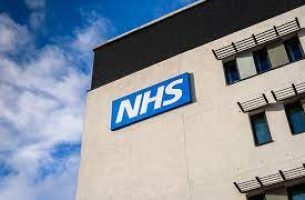What is a health visitor? Health visitors are qualified nurses or midwives who have undergone extra training. They work with families with children under five years old, to support and advise on child health and development. A health visitor will be notified when you book in with a midwife, and again when your baby is born. They will contact you initially at […]
Read MoreWhat is a pharmacist? Pharmacists are qualified and regulated health professionals – specialise in the preparation, dispensing, and management of medications. They are also trained in managing minor illnesses and providing health and wellbeing advice. Pharmacists are one of the key Allied Health Professionals (AHPs) in the NHS. All pharmacists are highly trained health professionals, who study […]
Read MoreWhere shall I take my child when they are unwell? Having an unwell child can be very scary and challenging even for the most experienced parents. Sometimes the best place for children to go is hospital. But often there are other places to go where they can be safely looked after (and sometimes better). Here […]
Read MoreHow social care is organised after discharge from hospital Being told that you are ready to leave hospital is positive news. But 20% of mainly elderly people also need to have social care organised. This enables you to stay well, and prevent readmission to hospital. It is sometimes called a ‘social package’; which can mean many different things, depending […]
Read MoreWhat are the main departments and clinics in a hospital? This is a list of the main departments and clinics in a hospital – and what they do. A Accident and Emergency (alternate names: Casualty; Emergency Department/Room, ED/ER) = accidents and emergencies Acute Medicine (Acute Internal Medicine). A branch of medicine that cares for (and […]
Read MoreHow do I change my GP (general practitioner)? It is quite easy actually. First of all, yes you can. All general practices are not the same. And not all patients and doctors get on. You may have a problem with the GPs in your local general practice, and do not like their manner or style. Some are […]
Read MoreHow to park free at hospital Most people have to pay for hospital parking in England and Northern Ireland. This includes patients, visitors and staff. It is free in Wales and Scotland. Most hospitals put some of the profit back into car park maintenance and patient care. The revenue from hospital parking in England is […]
Read MoreWhat is a ward clerk? If you are in hospital, get to know the ward clerk. Why They are important as they do the admin on the ward and make things happen. They often are a mine of useful information, and can do loads of things for you (ring a relative, get you a sandwich, […]
Read MoreWhat is a community midwife? A community midwife is a midwife who is based in a GP surgery or clinic and sees pregnant women and women and baby’s up to six weeks after the birth. Once you have found out you are pregnant, telephone your local GP surgery who will make you a booking appointment with a community midwife. […]
Read MoreWorking in medical education: 5 pros and 5 cons This page is written mainly for doctors (and medical students) – who are thinking of applying to an Academic Foundation Programme (AFP) for F1 and F2, or a career in medical education. 5 Pros – why should I work in medical education? 1. Flexible training hours […]
Read More


